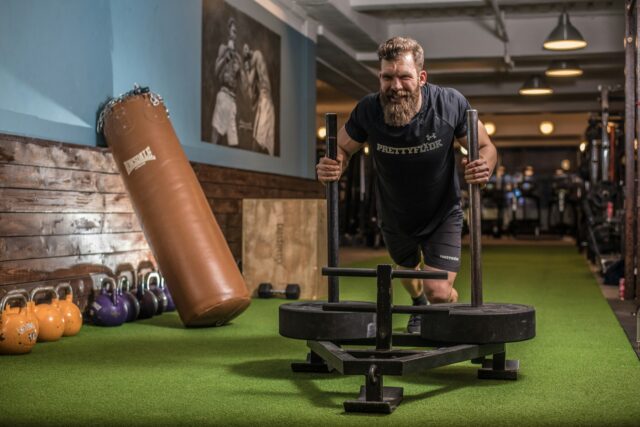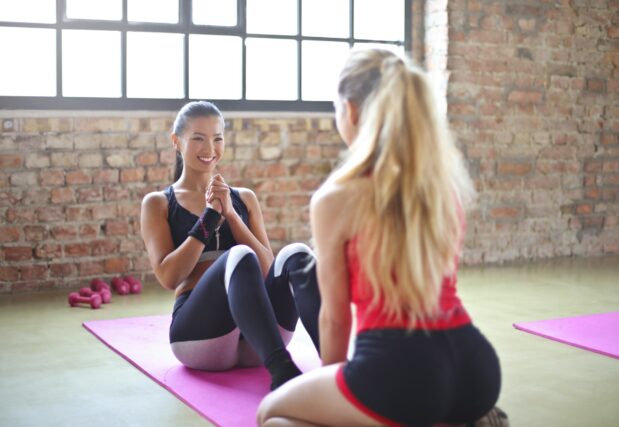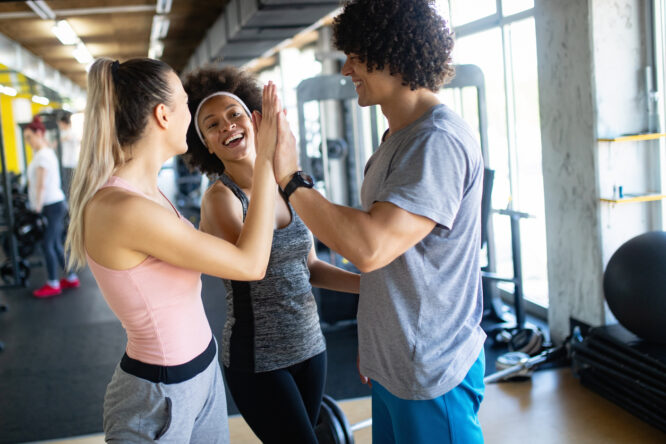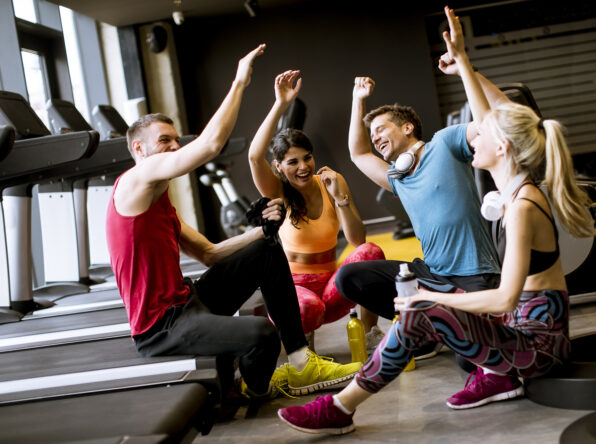There’s a new social shift taking place across the UK, and it’s happening in gyms, not pubs.

Gen Z is redefining what it means to hang out, choosing squat racks and spin classes over pints and pub crawls, according to data from UKActive, as reported by The Guardian. With gym memberships soaring to record highs, it’s clear this isn’t just a trend—it’s a full-blown cultural reset. Here’s why more young people are swapping bar tabs for barbells, and what’s driving this massive surge.
1. Health and fitness are becoming social activities.

For Gen Z, fitness isn’t just a solo mission anymore. Group classes, gym buddy sessions, and wellness communities are becoming the new way to socialise. It’s less about disappearing into a corner and more about moving, sweating, and pushing through challenges together. The change taps into a deeper craving for connection that feels healthier and more meaningful than the old model of bonding over drinks. It’s about building friendships around strength, not hangovers.
2. Drinking culture just doesn’t hold the same appeal.

While nights out will probably always have their place, Gen Z isn’t clinging to heavy drinking culture the way older generations did. Health risks, mental clarity, and long-term wellbeing are taking priority over blurry nights and regret-filled mornings. For a lot of young people, fitness offers the same social spark without the aftermath. It’s a space to unwind, connect, and celebrate wins without needing to numb out or overindulge.
3. Mental health is a top priority, and exercise definitely helps.

Gen Z is more open about mental health than any generation before them. They’re also more proactive about finding everyday tools to manage stress, anxiety, and low moods—and exercise is a major one. Gyms offer more than physical results. They’re safe spaces where people can channel stress, boost their mood naturally, and carve out time for self-care that actually makes a difference.
4. Fitness goals now feel more empowering than aesthetic.
 Source: Unsplash
Source: Unsplash It’s not just about chasing a certain body type anymore. Strength, stamina, flexibility, and feeling good in your own skin are taking centre stage. Gen Z is about performance, not punishment. That mindset change has transformed gyms from intimidating places into empowering ones. It’s about what your body can do—not just how it looks doing it—and that’s keeping more young people committed long-term.
5. The rise of boutique gyms and classes has made working out fun.
 Source: Unsplash
Source: Unsplash Forget dusty treadmills and fluorescent lighting. Today’s fitness spaces are dynamic, stylish, and community-driven. Spin studios, boxing clubs, yoga lofts, and high-energy bootcamps have given fitness a makeover that actually feels exciting. When workouts feel more like events than chores, it’s no surprise people would rather rally their friends for a gym class than another round at the pub. Energy attracts energy, and today’s gyms are buzzing.
6. Social media is fuelling fitness culture.
 Source: Unsplash
Source: Unsplash Fitness challenges, workout reels, personal records, and wellness tips are all over TikTok and Instagram. Gen Z grew up online, so naturally, they’re drawing inspiration—and accountability—from their feeds. Seeing friends, influencers, and everyday people smash fitness goals creates a feedback loop. It’s no longer weird to post about your deadlift PR instead of your latest cocktail—it’s celebrated.
7. Rising alcohol costs make the gym a smarter investment.
 Source: Unsplash
Source: Unsplash Going out isn’t cheap, and the cost of a few rounds can easily match (or even surpass!) a month’s gym membership these days. For young adults already battling high living costs, fitness feels like a smarter, more rewarding way to spend money. Instead of spending £50 on a night they barely remember, they’re investing that into something that actually boosts their energy, health, and self-esteem. It’s budgeting with benefits.
8. Sober-curious culture is going mainstream.

More and more people are questioning the “default” of drinking at every social occasion. Being sober-curious isn’t seen as weird anymore. In fact, it’s becoming a real, celebrated choice. Gyms offer a natural outlet for sober socialising. Whether it’s a post-class smoothie, a casual gym meet-up, or a running club, there’s a growing appetite for hangouts that don’t revolve around alcohol.
9. The gym provides a sense of routine and control.
 Source: Unsplash
Source: Unsplash In a world that often feels chaotic, having a set gym schedule gives people a much-needed anchor. It’s a space where you can set goals, track progress, and build resilience in real time. For Gen Z, whose adult years have been shaped by uncertainty and change, that sense of structure isn’t just helpful—it’s crucial. The gym offers stability in a way a night out never could.
10. They’re redefining what “fun” even looks like.

Fun isn’t synonymous with getting wrecked anymore. For a lot of Gen Z, fun means smashing a workout, hitting a new personal best, or leaving a gym class buzzing with endorphins and plans for a chill brunch after. It’s a softer, more sustainable kind of fun—one that doesn’t leave you with anxiety, regret, or a brutal hangover. It’s fun that actually adds to your life, instead of temporarily escaping it.
11. Gyms are getting better at being inclusive spaces.

More gyms are recognising that fitness isn’t one-size-fits-all. There’s growing awareness around creating welcoming spaces for people of all body types, backgrounds, and experience levels. When fitness stops feeling elitist or intimidating, more people feel comfortable walking through those doors—and staying. This sense of belonging is a huge part of why the new gym culture is thriving among young adults.
12. Working out together builds bonds that last.

Nothing brings people together like struggling through a tough workout and high-fiving at the end. Gym culture isn’t just about solo progress—it’s about community, shared experiences, and building friendships rooted in growth. For young people, those bonds often feel deeper and more meaningful than connections built over late-night shots. Sweating it out together builds trust, loyalty, and genuine pride in each other’s wins, and that’s a connection worth keeping.




